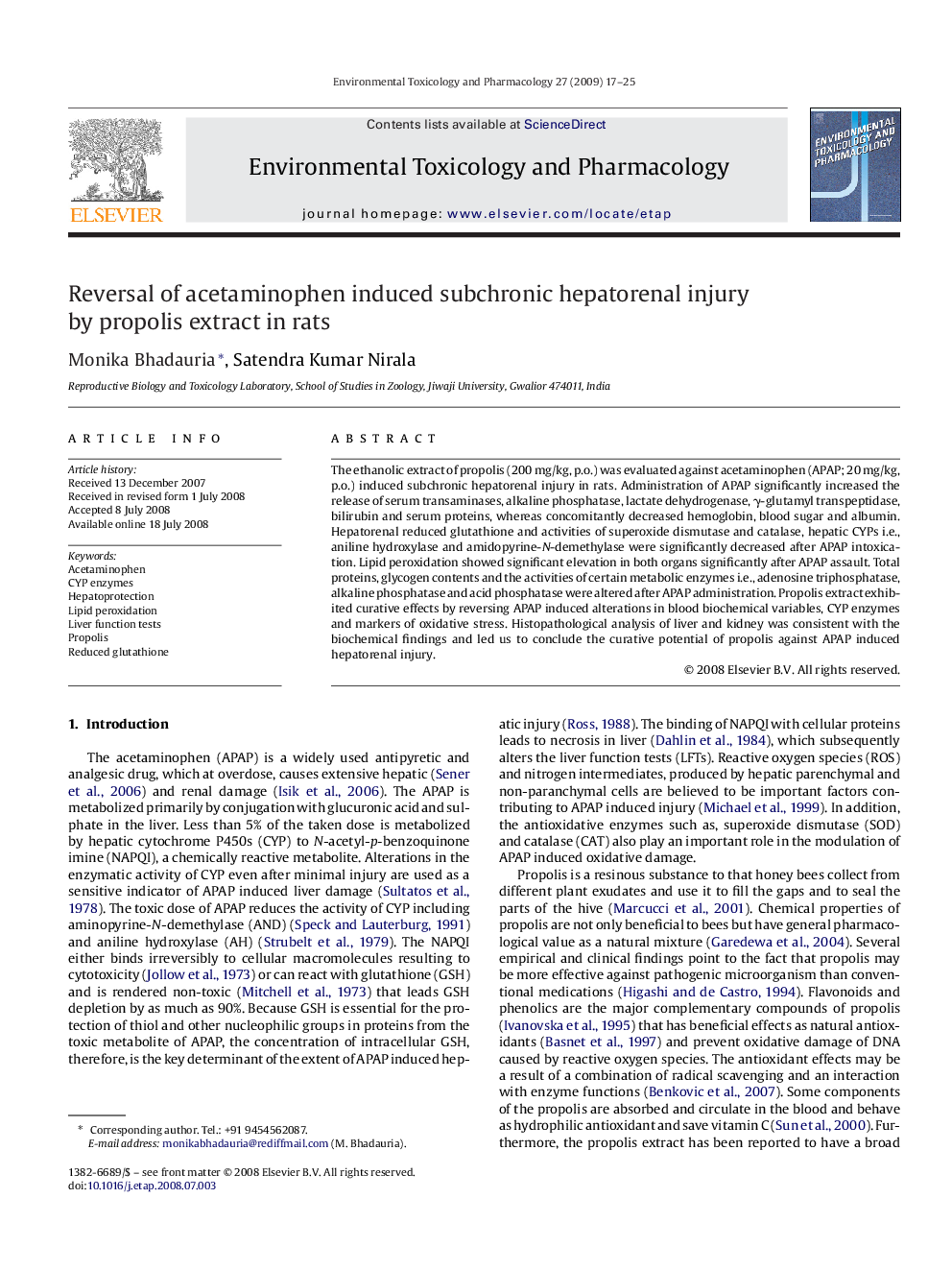| Article ID | Journal | Published Year | Pages | File Type |
|---|---|---|---|---|
| 2583817 | Environmental Toxicology and Pharmacology | 2009 | 9 Pages |
The ethanolic extract of propolis (200 mg/kg, p.o.) was evaluated against acetaminophen (APAP; 20 mg/kg, p.o.) induced subchronic hepatorenal injury in rats. Administration of APAP significantly increased the release of serum transaminases, alkaline phosphatase, lactate dehydrogenase, γ-glutamyl transpeptidase, bilirubin and serum proteins, whereas concomitantly decreased hemoglobin, blood sugar and albumin. Hepatorenal reduced glutathione and activities of superoxide dismutase and catalase, hepatic CYPs i.e., aniline hydroxylase and amidopyrine-N-demethylase were significantly decreased after APAP intoxication. Lipid peroxidation showed significant elevation in both organs significantly after APAP assault. Total proteins, glycogen contents and the activities of certain metabolic enzymes i.e., adenosine triphosphatase, alkaline phosphatase and acid phosphatase were altered after APAP administration. Propolis extract exhibited curative effects by reversing APAP induced alterations in blood biochemical variables, CYP enzymes and markers of oxidative stress. Histopathological analysis of liver and kidney was consistent with the biochemical findings and led us to conclude the curative potential of propolis against APAP induced hepatorenal injury.
